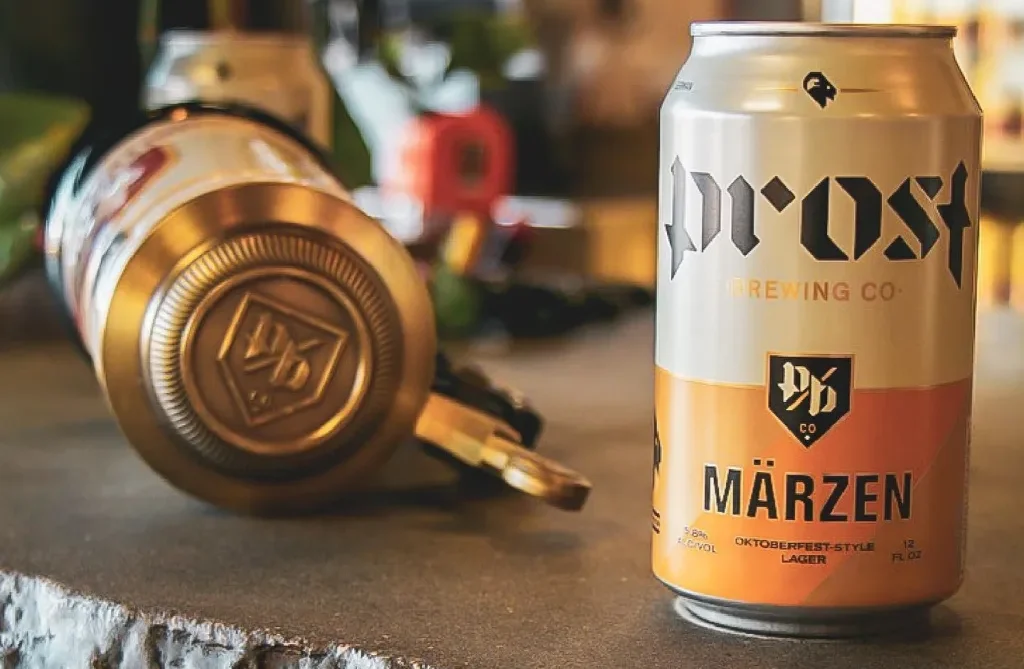Introduction to Marzen Beer
Ever found yourself sipping on a beer and wondering about its backstory? Marzen beer, with its rich history and distinct flavor, is a brew that commands attention. But what exactly is Marzen beer? Originating from Germany, Marzen is a type of lager known for its amber color, smooth maltiness, and moderate alcohol content. Let’s dive into its fascinating journey from medieval times to the modern Oktoberfest.
The Origins of Marzen Beer
Historical Background
Marzen beer traces its roots back to the 16th century. In those days, brewing was only possible between September and April to prevent spoilage from summer heat. The beers brewed in March (Marzen in German) were made stronger to last through the warmer months.
Origin of the Name “Marzen”
The name “Marzen” simply means “March” in German, highlighting the beer’s brewing season. Traditionally, Marzen was brewed in March and stored in cool cellars to be consumed in the fall.
The Brewing Process of Marzen Beer
Ingredients Used
The magic of Marzen begins with its ingredients: high-quality malt, hops, water, and yeast. The choice of malt is crucial, as it gives Marzen its characteristic caramel and toasty flavors.
Step-by-Step Brewing Process
- Mashing: The malt is mixed with hot water to convert starches into fermentable sugars.
- Boiling: The wort is boiled, and hops are added for bitterness and aroma.
- Fermentation: Yeast is added, and the mixture is left to ferment.
- Lagering: The beer is stored at low temperatures for several weeks to develop its clean, crisp profile.
Characteristics of Marzen Beer
Appearance
Marzen beers typically range from pale to dark amber. They have a clear, bright appearance with a substantial frothy head.
Aroma
Expect a rich, malty aroma with notes of bread, caramel, and a hint of hops. The balance between malt and hop aromas defines a good Marzen.
Flavor Profile
The flavor of Marzen is where it truly shines. It’s malt-forward, featuring a smooth, toasty sweetness balanced by a mild hop bitterness. You might also pick up hints of caramel, biscuit, and sometimes a slight nuttiness.
Types of Marzen Beer
Traditional Marzen
The traditional Marzen is more robust and malt-forward, with a deeper amber color. It’s the version you’re most likely to encounter at traditional beer halls.
Modern Variations
Contemporary brewers often experiment with Marzen, creating lighter versions or adding unique twists with different hop varieties. These modern Marzen beers can have a broader flavor spectrum, appealing to a diverse audience.
Marzen Beer and Oktoberfest
The Connection to Oktoberfest
Marzen beer is synonymous with Oktoberfest, the world’s largest beer festival. Originally, the remaining stock of Marzen brewed in March was consumed during the Oktoberfest celebrations in September and October.
How Marzen Became the Official Beer of Oktoberfest
Over time, Marzen evolved to become the official beer style of Oktoberfest. Its rich flavor and higher alcohol content made it perfect for the festive atmosphere. Today, only six Munich breweries are allowed to produce the official Oktoberfest Marzen.
Popular Marzen Beer Brands
Spaten
Spaten’s Oktoberfestbier is a classic Marzen with a history dating back to 1872. It’s known for its smooth, malty taste and is a staple at Oktoberfest.
Paulaner
Paulaner’s Oktoberfest Marzen is slightly lighter and crisper, making it highly drinkable. It’s a favorite among those who prefer a less intense malt profile.
Ayinger
Ayinger Oktober Fest-Marzen is renowned for its balanced malt sweetness and slight hop bitterness. It’s a prime example of traditional Marzen craftsmanship.
Pairing Marzen beers with Food
Best Food Pairings
Marzen pairs wonderfully with a variety of foods. Think roasted meats, sausages, and hearty German fare like pretzels and schnitzels. Its maltiness complements the savory flavors perfectly.
Seasonal Dishes
In the fall, enjoy Marzen with dishes like pumpkin soup or roasted vegetables. During Oktoberfest, it’s almost mandatory to pair it with a big, salty pretzel.
How to Serve Marzen Beer
Ideal Serving Temperature
Marzen is best served slightly chilled, around 50-55°F (10-13°C). This temperature brings out its malt flavors and maintains its crisp finish.
Glassware Recommendations
A traditional beer stein or a dimpled mug is perfect for enjoying Marzen. These glasses help retain the beer’s head and enhance the drinking experience.
Homebrewing Marzen Beer
Tips for Homebrewers
Brewing Marzen at home can be a rewarding challenge. Focus on quality malt, precise temperature control during fermentation, and patience during the lagering process.
Common Challenges and Solutions
One common issue is achieving the right balance of malt sweetness and hop bitterness. Adjusting the malt-to-hop ratio and paying attention to the lagering time can help perfect your brew.
Marzen Beer in Modern Culture
beers in Movies and TV
Marzen beers often makes appearances in movies and TV shows set in Germany or featuring Oktoberfest scenes. It adds an authentic touch to the portrayal of German culture.
Cultural Significance Today
Today, Marzen beers is celebrated worldwide, not just in Germany. It’s a symbol of tradition, festivity, and the timeless art of brewing.
Health Benefits and Considerations
Nutritional Information
Marzen beer is relatively moderate in calories compared to other beers, but it’s still important to enjoy it in moderation.
Moderation and Health
Like any alcoholic beverage, Marzen should be consumed responsibly. Enjoying it in moderation can be part of a balanced lifestyle.
Exploring Marzen Beer Festivals
Notable Beer Festivals Worldwide
Beyond Oktoberfest, Marzen beers are featured at various beer festivals globally, such as the Great American Beer Festival and local Oktoberfest celebrations in cities around the world.
What to Expect at a Marzen Beer Festival
At these festivals, you can expect an abundance of Marzen beers, traditional music, dancing, and plenty of German food. It’s a cultural immersion that celebrates the essence of Marzen.
Future Trends in Marzen beer
Innovations in Brewing
Brewers are continually experimenting with Marzen, incorporating new ingredients and techniques to create unique flavors while respecting traditional methods.
Emerging Markets
Marzen is gaining popularity in emerging beer markets, particularly in Asia and South America, where craft beer movements are flourishing.
Conclusion
Marzen beers is more than just a drink; it’s a tradition steeped in history, craftsmanship, and cultural significance. From its humble origins to its starring role at Oktoberfest, Marzen continues to delight beer enthusiasts around the world. Whether you’re a seasoned beers lover or new to the world of Marzen, there’s always something new to discover in every glass.
FAQs
What makes Marzen beers different from other lagers?
Marzen beers is maltier and usually stronger than standard lagers, with a distinct amber color and a smooth, toasty flavor profile.
Can Marzen beer be brewed year-round?
While traditionally brewed in March, modern brewing techniques allow Marzen to be produced year-round, though it’s often associated with the fall season.
What is the alcohol content of Marzen beers ?
Marzen beers typically have an alcohol content ranging from 5% to 6%, making them moderately strong compared to other lagers.
How long can Marzen beers be stored?
When stored properly in a cool, dark place, Marzen beers can be enjoyed for up to six months. Its flavors can even improve with some aging.
Where can I find authentic Marzen beers ?
Authentic Marzen beers can be found at well-stocked liquor stores, specialty beer shops, and during Oktoberfest celebrations. Look for brands like Spaten, Paulaner, and Ayinger for genuine experiences.







